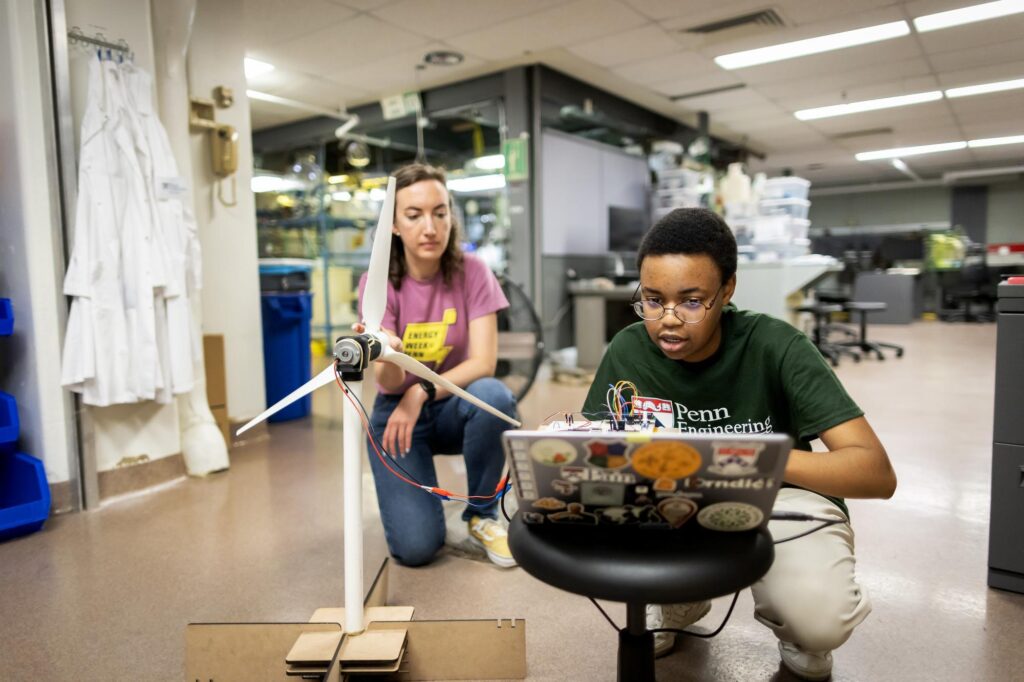
In the midst of the complicated landscape of energy, economics, and environmental policy, third-year Mechanical Engineering and Applied Mechanics (MEAM) student Ngaatendwe Manyika is helping to develop a new course for the next generation of engineers building renewable energy sources.
This summer, with the guidance of practice assistant professor in Chemical and Biomolecular Engineering Lorena Grundy and support from Penn’s Environmental Innovations Initiative (EII), Manyika built small wind turbines that generate clean power, documenting each step. Her work, facilitated by Penn Sustainability and funded through EII’s Integrating Sustainability Across the Curriculum (ISAC) program and Penn School of Engineering and Applied Science‘s Academic Innovation Fund, will serve as a pilot for Grundy’s upcoming course, Renewable Energy Technologies Lab, to be offered in Fall 2026.
While testing the turbines, Manyika recalls a group of kids who called the test rig a “windmill.” That moment, she says reminded her that modern machines often have deep roots. She says in building wind turbines the approach is a way of solving the challenge of renewable energy generation in new ways.
Manyika says that while some can find clean and renewable energy technology intimidating, she hopes to break down those misconceptions. In doing that, it may help to consider that “some of the technology has been with us for a long time,” she says.
Manyika first met Grundy and learned about the EII funding opportunity while taking Energy and Sustainability Science: Science, Engineering, and Technology (ENGR 5215) last semester. She was chosen as one of the three students funded by EII for the ISAC program this summer working 30 hours per week. She split her time equally working with Grundy on the renewable energy course and with Russell Composto of Materials Science and Engineering on a policy-focused course.
Grundy, a chemical engineer steeped in battery technology and polymers, says Manyika’s efforts over the last two months have helped identify what can be taught, built, and learned in a 15-week semester.
